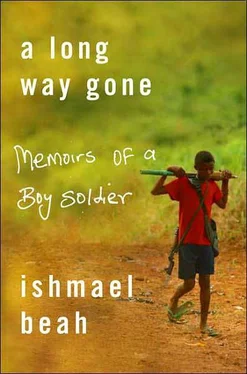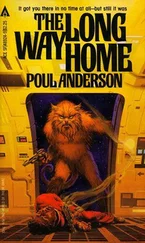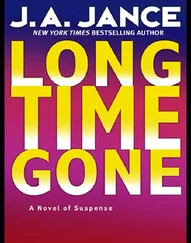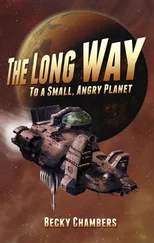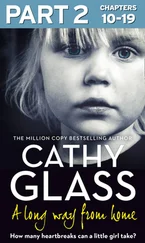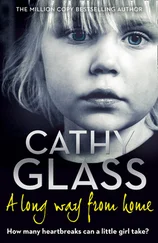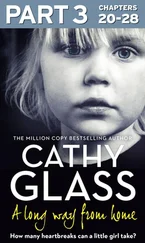I do not know the name of the village that we were in and didn’t bother to ask, since I was busy trying to survive the everyday obstacles. We didn’t know the names of other towns and villages and how to get there. So hunger drove us back to Mattru Jong again. It was dangerous, but hunger made us not care that much. It was summertime, the dry season, and the grassland had grown yellowish. A fresh green forest engulfed it.
We were in the middle of the grassland walking in single file, our shirts on our shoulders or heads, when suddenly three rebels rose from behind the dried grasses and pointed their guns at Gibrilla, who was in the front. They cocked their guns, and one of them placed the muzzle of his gun under Gibrilla’s chin. “He is scared like a soaked monkey,” the rebel laughingly told his companions. As the other two walked past me, I avoided eye contact by putting my head down. The younger rebel raised my head with his bayonet, still in its scabbard. While he was looking at me sternly, he took the bayonet from its scabbard and attached it at the muzzle of his gun. I trembled so hard that my lips shook. He smiled without emotion. The rebels, none of whom were older than twenty-one, started walking us back to a village we had passed. One was dressed in a sleeveless army shirt and jeans, his head tied with a red cloth. The other two were dressed in jeans jackets and pants, wearing baseball hats backward and new Adidas sneakers. All three wore a lot of fancy watches on both wrists. All these things had been taken from people by force or looted from houses and shops.
The rebels said a lot of things as we walked. Whatever they said didn’t sound friendly. I couldn’t hear their words, because all I could think about was death. I struggled to avoid fainting.
As we approached the village, two of the rebels ran ahead. Six of us and one rebel, I thought to myself. But he had a semiautomatic machine gun and a long belt of bullets wrapped around him. He made us walk in two lines of three, with our hands on our heads. He was behind us, aiming his gun at our heads, and at some point he said, “If any of you makes a move, I will kill everyone. So don’t even breathe too hard or it might be your last.” He laughed and his voice echoed in the distant forest. I prayed that my friends and brother wouldn’t make any sudden moves or even try to scratch an itch. The back of my head was getting warm, as if expecting a bullet anytime.
When we got to the village, the two rebels who had run ahead had gathered everyone who was there. There were over fifteen people, mostly young boys, some girls, and a few adults. They made us all stand in the compound of a house that was closer to the bush. It was getting dark. The rebels took out their big flashlights and placed them on top of the rice-pounding mortars, so that they could see everyone. While we stood there under gunpoint, an old man who had escaped from Mattru Jong was heard crossing a creaky wooden bridge leading to the village. While we watched, the youngest rebel walked toward the old man and waited for him at the foot of the bridge. He was placed at gunpoint as soon as he crossed over and brought in front of us. The man was probably in his sixties, but looked weak. His face was wrinkled from hunger and fear. The rebel pushed the old man to the ground, put a gun to his head, and ordered him to get up. On trembling knees the old man managed to stand. The rebels laughed at him and made us laugh with them by pointing their guns at us. I laughed loudly, but I was crying internally and my legs and hands trembled. I clenched my fists, but that made the trembling worse. All the captives stood at gunpoint watching as the rebels proceeded to interrogate the old man.
“Why did you leave Mattru Jong?” a rebel asked while examining his bayonet. He measured the length of his knife with his fingers and then held it against the old man’s neck.
“It looks like a perfect fit.” He motioned driving the bayonet through the old man’s neck.
“Now are you going to answer my question?” The veins on his forehead stood out as his fierce red eyes watched the trembling face of the old man, whose eyelids were shaking uncontrollably. Before the war a young man wouldn’t have dared to talk to anyone older in such a rude manner. We grew up in a culture that demanded good behavior from everyone, and especially from the young. Young people were required to respect their elders and everyone in the community.
“I left town to look for my family,” the old man said in a frightened voice, as he managed to catch his breath. The rebel with the semiautomatic machine gun, who had been standing against a tree smoking a cigarette, furiously walked toward the old man and pointed his gun between the old man’s legs.
“You left Mattru Jong because you don’t like us.” He put his gun on the old man’s forehead and continued. “You left because you are against our cause as freedom fighters. Right?”
The old man closed his eyes tightly and began to sob.
What cause? I thought. I used the only freedom that I had then, my thought. They couldn’t see it. While the interrogation went on, one of the rebels painted RUF on all the walls of the houses in the village. He was the sloppiest painter I have ever seen. I don’t think he even knew his alphabet. Rather, he only knew what R, U, and F looked like. When he was done painting, he walked up to the old man and placed his gun to the old man’s head.
“Do you have any last words to say?” The old man at this point was unable to speak. His lips trembled, but he couldn’t get a word out. The rebel pulled the trigger, and like lightning, I saw the spark of fire that came from the muzzle. I turned my face to the ground. My knees started trembling and my heartbeat grew faster and louder. When I looked back, the old man was circling around like a dog trying to catch a fly on its tail. He kept screaming, “My head! My brains!” The rebels laughed at him. Finally, he stopped and slowly raised his hands toward his face like a person hesitant to look in a mirror. “I can see! I can hear!” he cried out, and fainted. It turned out that the rebels hadn’t shot him but had fired at close range near his head. They were very amused at the old man’s reaction.
The rebels now faced us and announced that they were going to select some people among us to be recruited, as it was the sole reason for their patrol. They ordered everyone to line up: men, women, even children younger than I. They walked up and down the line trying to make eye contact with people. First, they chose Khalilou, and then myself, then a few others. Each person that was chosen was asked to stand in a different line facing the previous one. Junior wasn’t chosen, and I stood facing him on the other side of the crowd, on my way to becoming a rebel. I looked at him, but he avoided eye contact, putting his head down. It seemed as if our worlds were different now and our connection was breaking. Fortunately, for some reason the rebels decided to do a fresh pick. One of them said that they had chosen wrongly, since most of us who had been chosen were trembling and that meant we were sissies.
“We want strong recruits, not weak ones.” The rebel pushed us back to the other side of the crowd. Junior edged next to me. He gave me a soft poke. I looked up at him and he nodded and rubbed my head.
“Stand still for the final pick,” one of the rebels screamed. Junior stopped rubbing my head. During the second pick, Junior was chosen. The rest of us weren’t needed, so they escorted us to the river followed by the chosen ones.
Sweeping an arm in our direction, one of the rebels announced, “We are going to initiate all of you by killing these people in front of you. We have to do this to show you blood and make you strong. You’ll never see any of these people again, unless you believe in life after death.” He punched his chest with his fist and laughed.
Читать дальше
